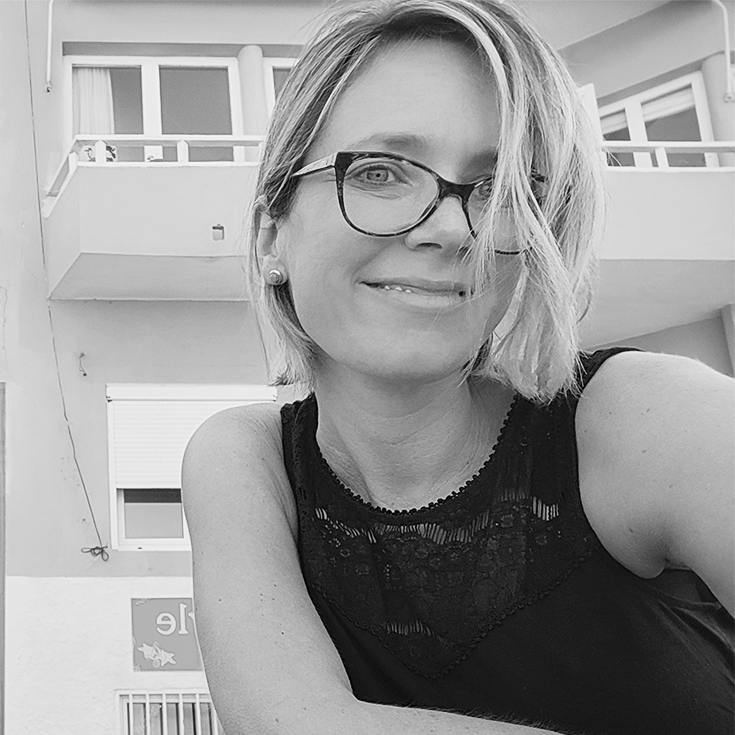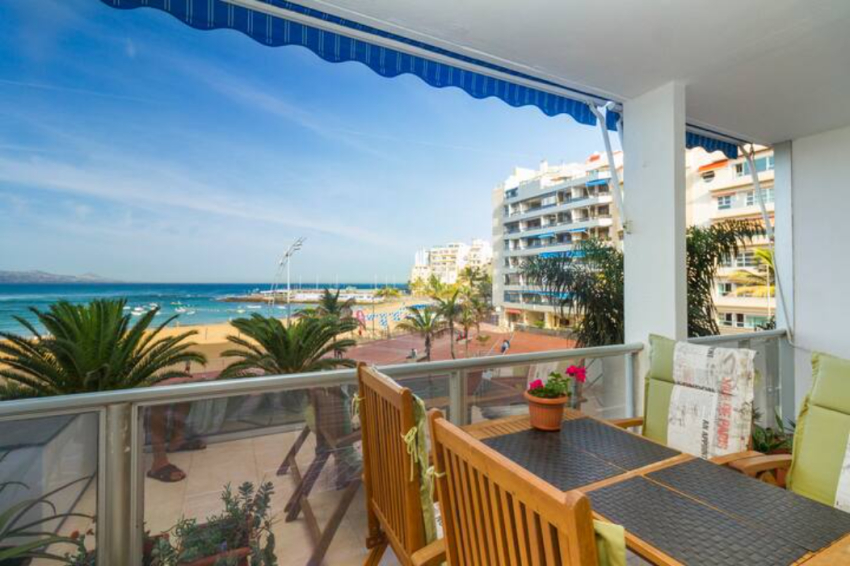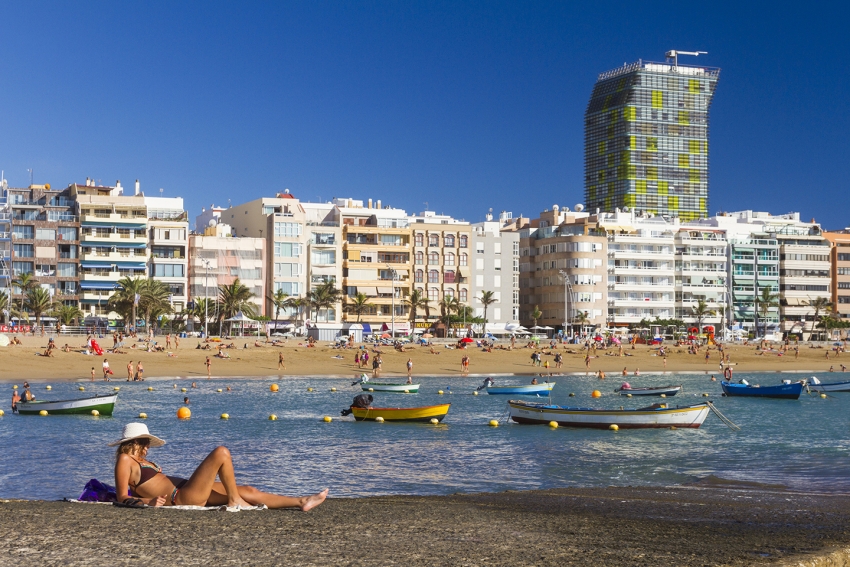Gran Canaria Property: Invaluable Las Palmas Property Tips
 We've asked Laura Leyshon, our favourite Las Palmas estate agent, to put together this set of useful tips about buying a property in Las Palmas.
We've asked Laura Leyshon, our favourite Las Palmas estate agent, to put together this set of useful tips about buying a property in Las Palmas.
Written by Laura Leyshon, resident estate agent and Las Palmas property expert.
Get a current nota simple before you buy a Las Palmas property
The Gran Canaria property registry is excellent and keeps detailed information about every registered property on the island. You can access this information by going to the registry and asking for a nota informative or nota simple for any property on the island. All you need is the exact address.
A nota informativa contains a detailed description of the property as it was registered, information about the legal owners, any mortgage on the property and any unpaid taxes or fines.
It is vital that you see an up-to-date nota informativa and compare the information it contains with the property you're considering. Any discrepancies must be explained fully by the owner.
The best time to ask for a nota informative is just before you put down a deposit and sign a pre-contract (known as an arras contract) because then you know that you have seen the most up-to-date version.
You need to see an updated one before you pay for your Las Palmas property.
See the area at different times
As with all urban areas, the zone around your Las Palmas property is important and I advise you to visit it several times ar different times of the day and night to make sure that you know what to expect. For example, some streets are quiet during the day but lively at night, while others don't get much sunshine due to taller buildings around them.
If you can't visit the area more than once, ask on forums, or just ask your Las Palmas estate agent for an honest opinion.
Which way is it facing?
Everyone who buys a property in Las Palmas wants lots of natural light and sunshine, but you can have too much of a good thing. For example, south-facing properties with large windows can heat up during the summer and you may need to factor in the extra cost of air conditioning. Conversely, shaded or north-facing buildings can be cold in the winter (Las Palmas properties don't have cavity insulation). This may seem like a minor point, but it's worth knowing exactly what to expect before you buy.
Check urban plans for the zone
If your Las Palmas property has a view, or you think there may be plans for the local area, you can check this in the ayuntamiento (Town Hall). The urban planning department is open to the public on Tuesdays and you need to speak Spanish to find out anything useful. A chat with planning will tell you if any plots in the area have building projects approved and whether there are any serious projects that may cause noise.
Bilingual representative
Unless you speak (and read) fluent Spanish, it is vital that you have a bilingual representative before you buy a Las Palmas property. If you don't, you could easily miss something in the contract or misunderstand the owner. Also, Spanish notaries have an obligation to make sure that all parties fully understand a contract before they sign. If you don't speak Spanish, then the notary could refuse to let you sign the contract.
Your representative can be a bilingual estate agent, a gestor (a mix between an accountant and an advisor), or a lawyer (you need one familiar with Spanish property law and Canarian tax regulations); Just make sure that whoever you choose is completely transparent with you at all times.
Identity numbers and bank accounts
To buy a property in Gran Canaria, you need to have a local bank account and a NIE (Spanish ID number for foreigners). You can apply for a NIE from your nearest Spanish consulate at home, but it is much quicker to get one in Gran Canaria once you have a pre-contract to buy a property.
All you need to open a non-resident bank account is a passport.
Communidad and derramas
Most apartments buildings in Las Palmas have a community of owners (all residential properties must have one by law if they contain more than 3 separate properties). Each owner pays a monthly fee (called the communidad) for building maintenance and services at a rate determined by the proportion of the building that they own. Community fees vary considerably and can range from €30 to €200 per month.
When the community fee isn't enough top pay for building repairs of maintenance, the community organises a derrama to raise the money. All members of the communidad are obliged to pay their share, although payments are normally staggered over a period of at least a year.
It is always worth asking about the communidad and any derramas before you buy in Las Palmas and especially if you plan to buy an older property; Owners have been known to sell up rather than pay a large derrama. If you have any doubts, ask for the contact details of the president of the community of owners (they are elected by the communidad).
Study home and local mortgage options and apply to several local banks
Non-resident mortgages are available in Las Palmas but can take a while to arrange and you need a larger deposit and higher earnings than a resident buying the same property. I'd advise all buyers who need a mortgage to look into both local and home mortgages, and to apply to several local banks at the same time.
This avoids having all your eggs in one basket and means that you have a better chance of success.
Relax: Some things take time
As a British estate agent in Las Palmas, I strive to get everything done as efficiently and quickly as possible. However, experience has taught me that while everything gets done in the end, some procedures in Las Palmas just take time. For example, mortgage applications, property valuations and even legal paperwork are sometimes delayed, especially around the summer and Christmas holidays.
Because local owners and buyers are used to delays, purchase option contracts often last for three months to make sure that both parties have time to get everything in order. While most purchases happen faster, there is no way of rushing a Spanish bank or a property valuer. Sometimes, as infuriating as it is, you just have to wait.
Use an agency: It's free
It is perfectly possible to buy a property in Las Palmas without using an estate agency provided that you speak Spanish and have detailed knowledge of all the relevant laws. However, because agency commissions are paid by the seller, I advise all buyers to use the services of an estate agent.
Having a local agent in your corner to arrange viewings, advise you on current market prices and make sure that the whole buying process goes without a hitch is invaluable.
Laura Leyshon is Las Palmas' leading British estate agent and works for one the city's oldest and most trusted agencies. She knows the Las Palmas property market inside out and is always happy to answer any questions you have.
Gran Canaria Property: Essential Info About Buying In Las Palmas
If you've visited Gran Canaria's capital city and decided that it's the place to buy a holiday property or even to live, here's some really useful info that you need to know about the Las Palmas property market.
Gran Canaria Info recommends:
- Default
- Title
- Date
- Random














